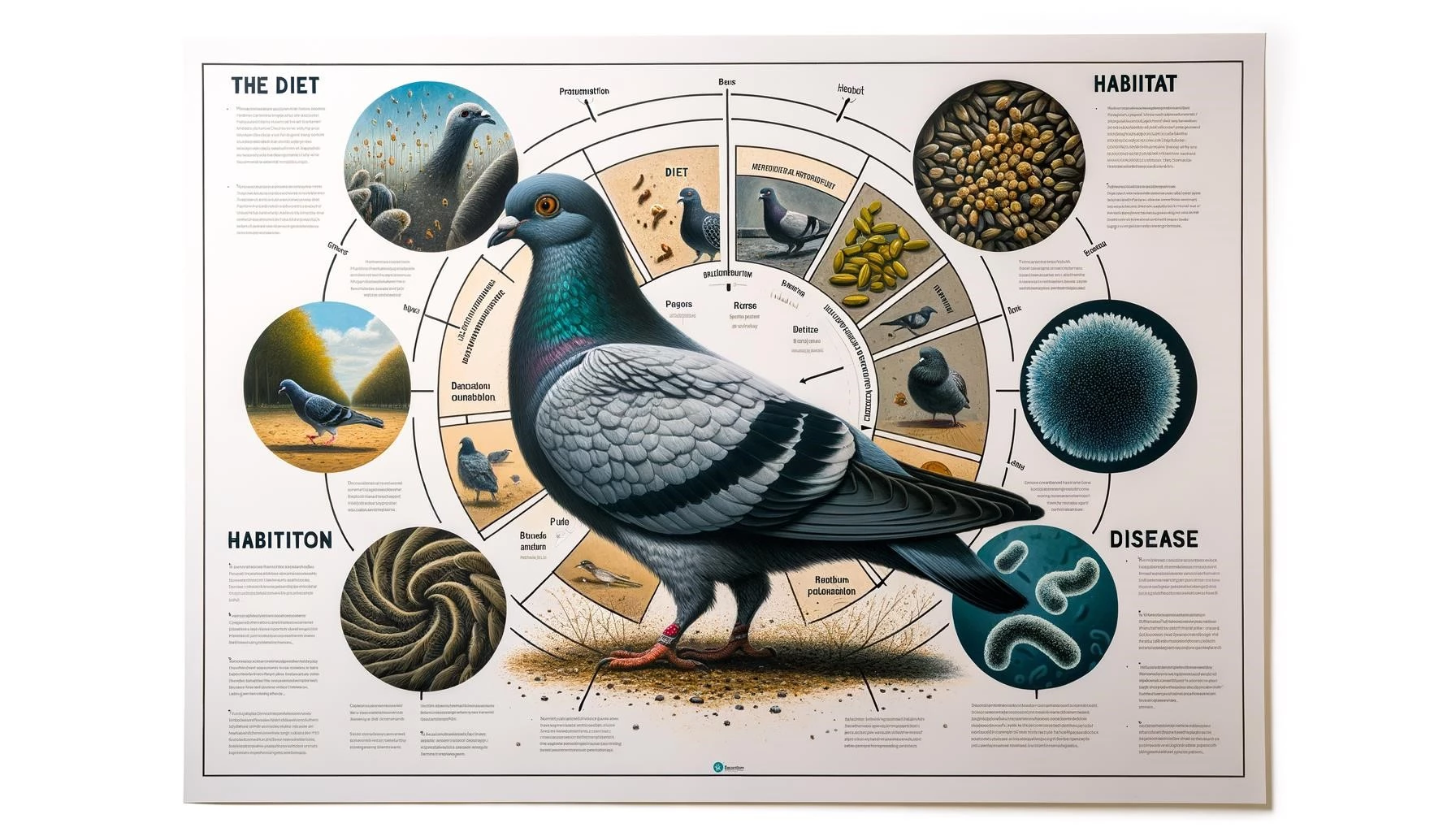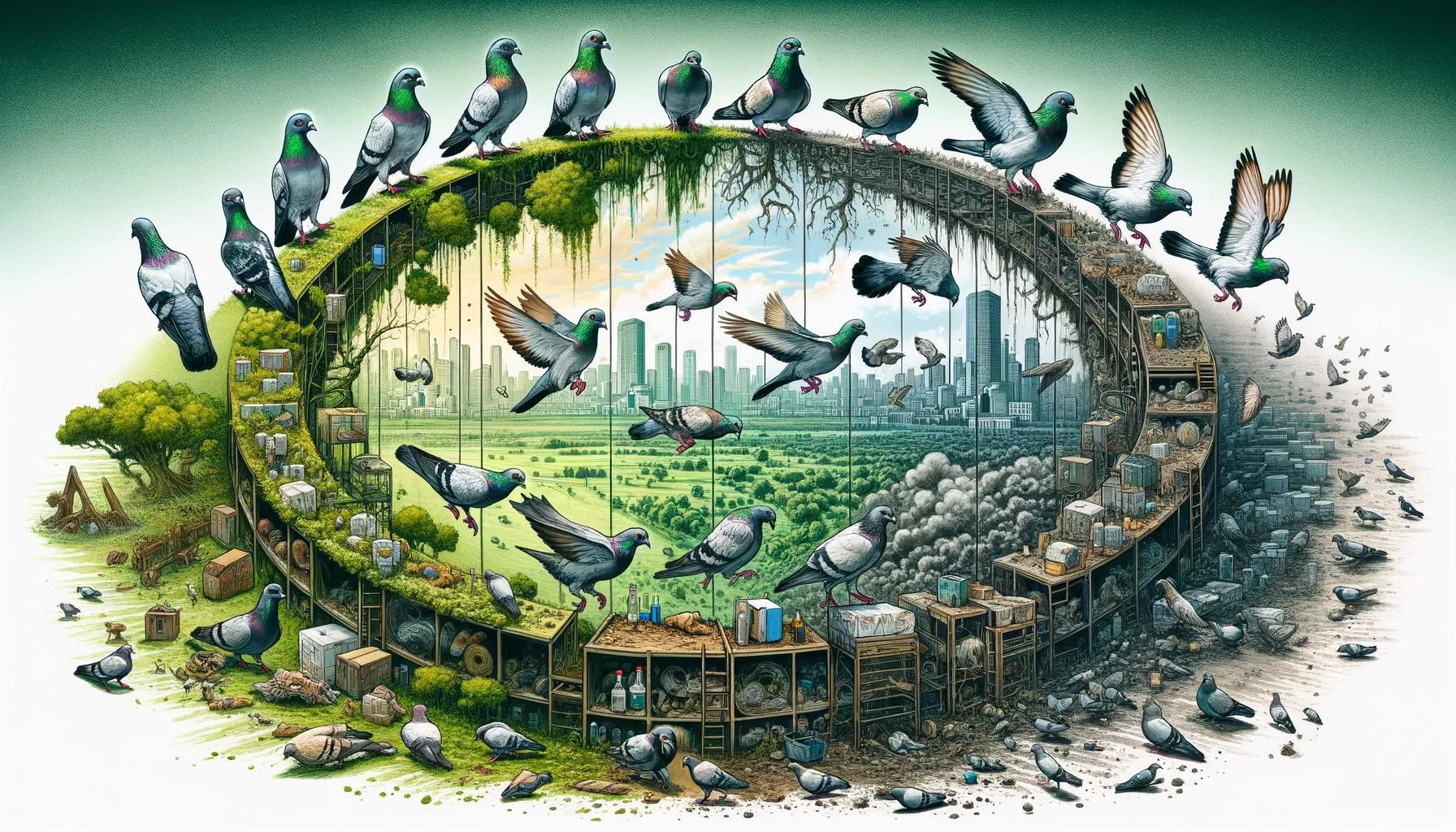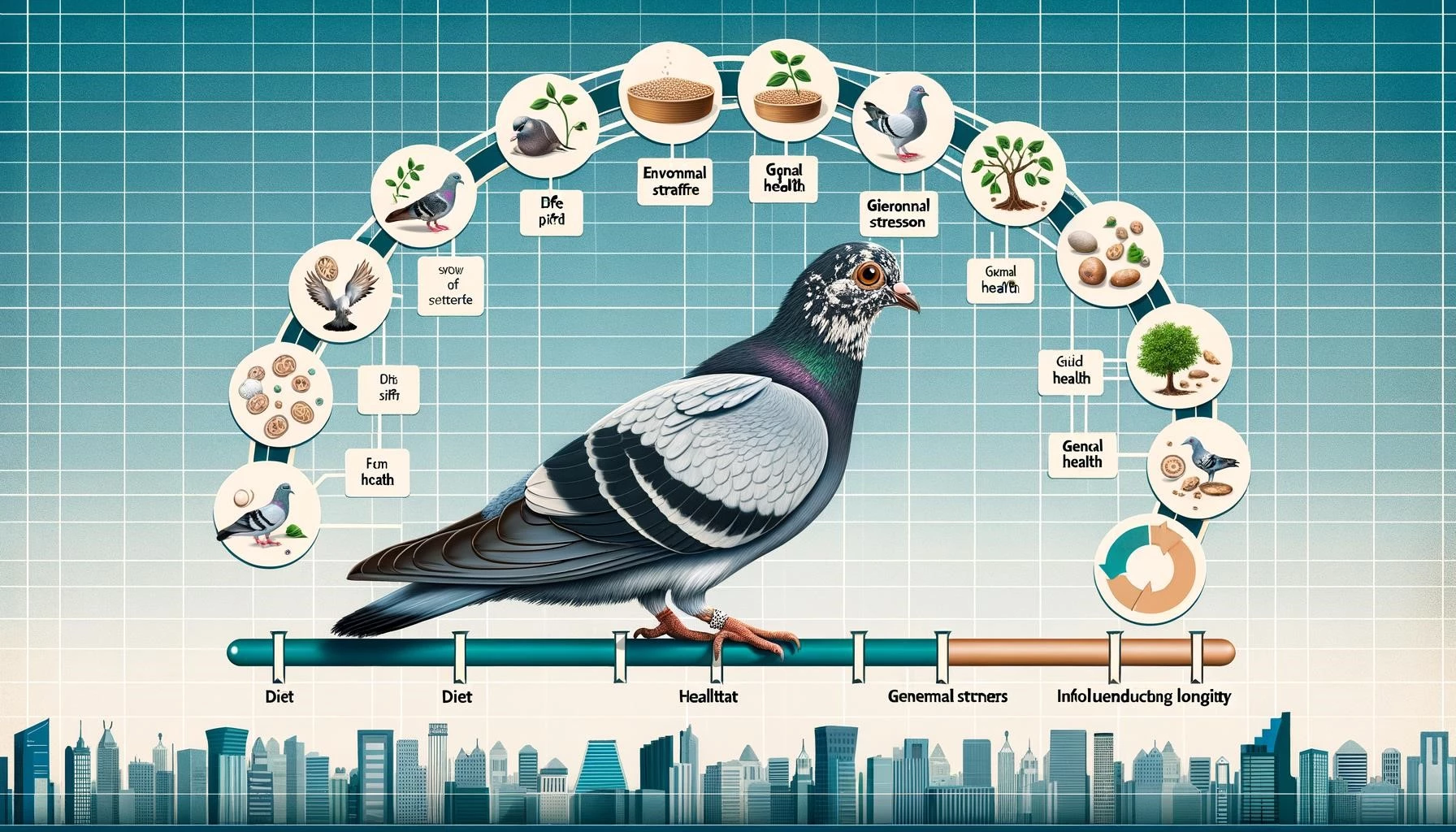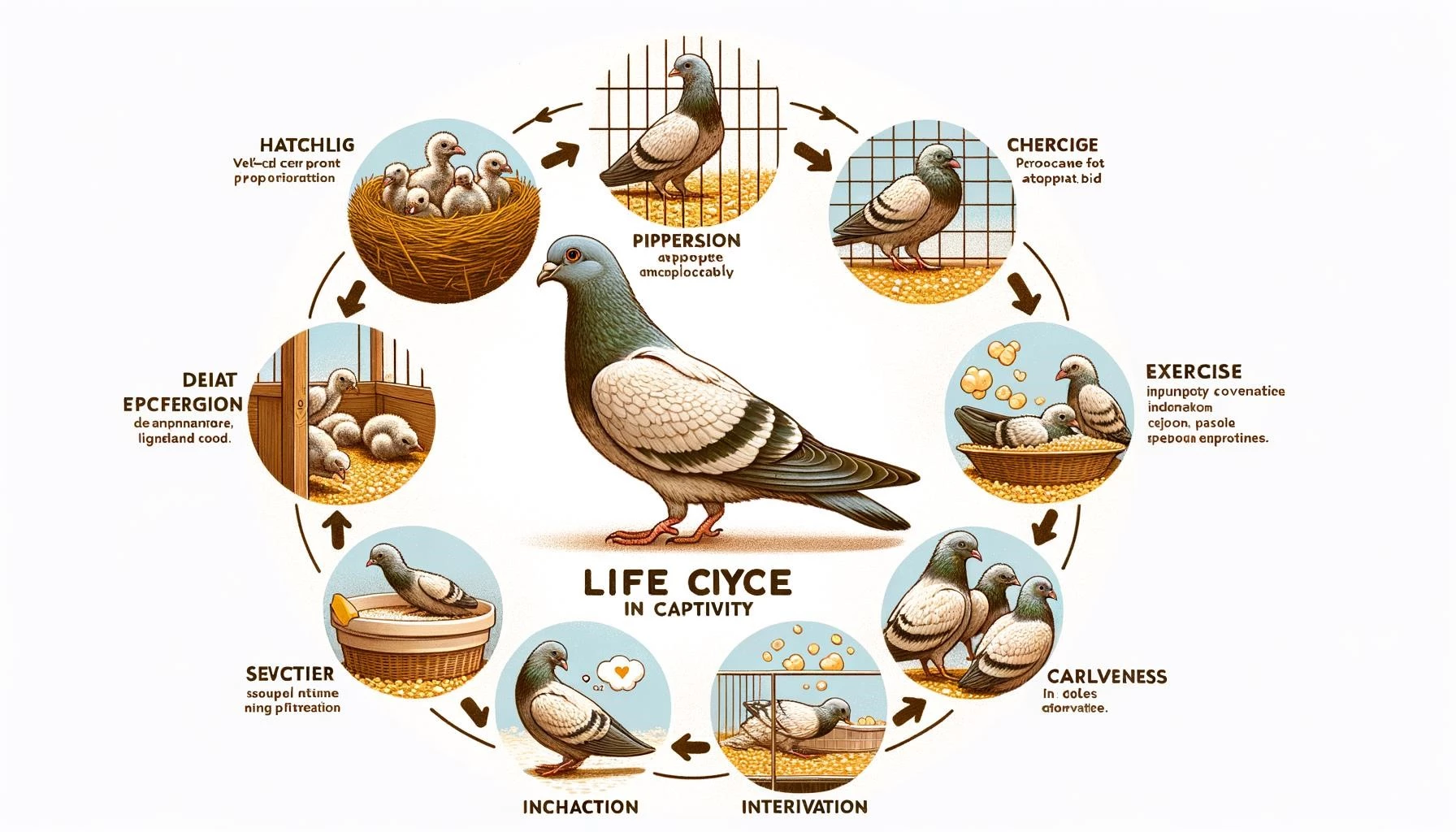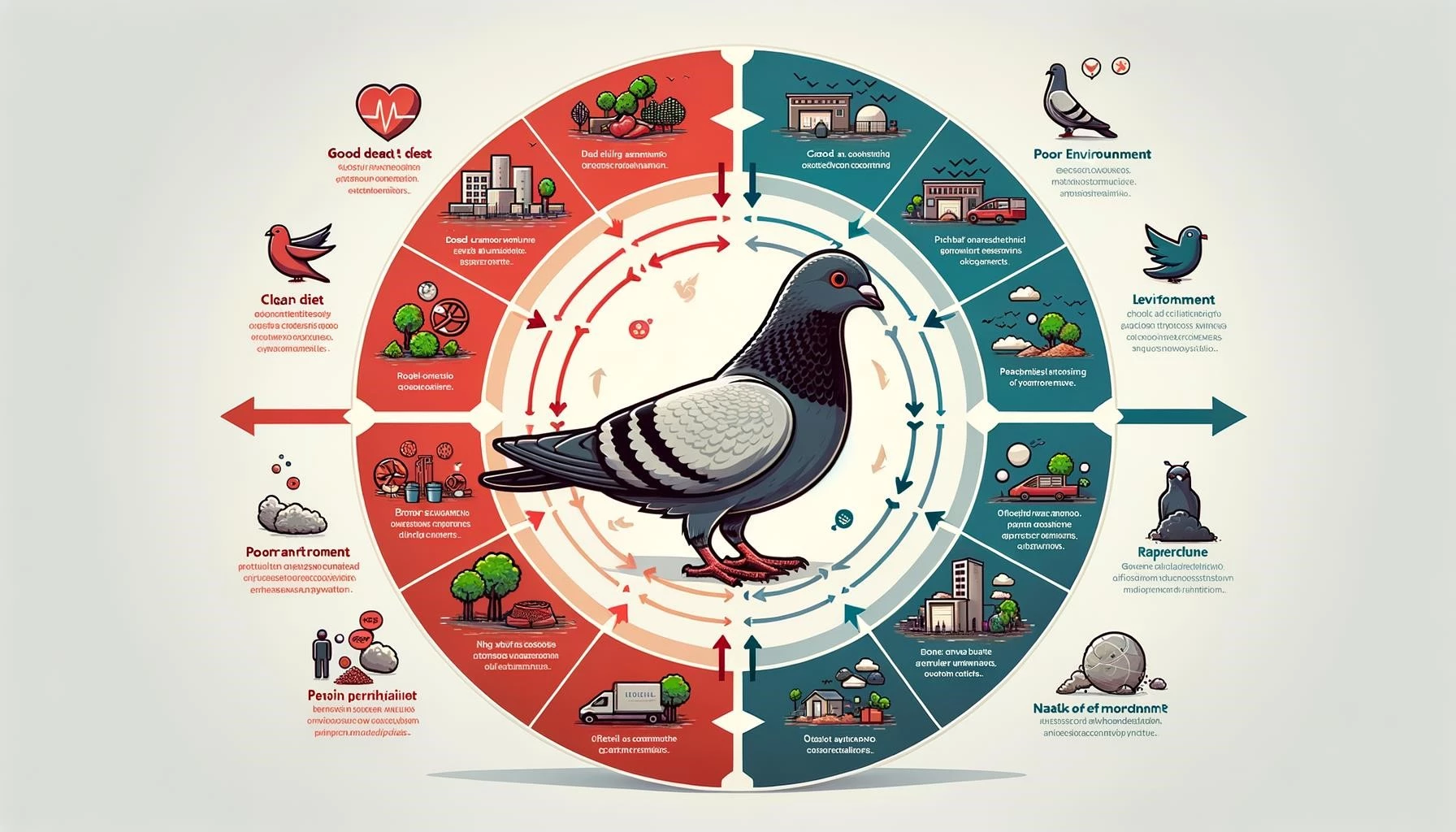Exploring the fascinating world of pigeons, we uncover the intricate factors that shape their lifespan and the subtle ways seasons influence their existence. With wild pigeons living an average of 3 to 5 years and domesticated ones reaching up to 20 years, their longevity can be impacted by diet, environment, genetics, and predators. While seasons do not directly dictate their lifespan, they do play a significant role in their reproductive behaviors and survival in the wild.
Pigeon Lifespan
Pigeons, both wild and domesticated, have varying lifespans depending on various factors. In the wild, the average lifespan of a pigeon ranges from 3 to 5 years. Some pigeons in the wild have been known to live up to 6 years, while others may not survive beyond 1 or 2 years due to predation, diseases, environmental conditions, and competition for resources. On the other hand, domesticated pigeons have a longer lifespan, typically living between 10 to 20 years in captivity. The oldest known pigeon on record reached 34 years. Captive pigeons are protected from many threats and provided with proper care, which contributes to their increased longevity compared to their wild counterparts.
Factors Affecting Pigeon Lifespan
Several factors can influence the lifespan of pigeons, both in the wild and captivity:
- Dietary Choices: Proper nutrition and a balanced diet play a crucial role in a pigeon’s overall health and lifespan. A well-fed pigeon is more likely to have a longer lifespan compared to one that suffers from malnutrition or inadequate food sources.
- Environmental Factors: Pigeons living in urban environments may face different challenges and dangers compared to those in rural or historical settings. Exposure to extreme weather conditions, pollution, and access to suitable nesting and roosting sites can impact a pigeon’s lifespan.
- Heredity: Just like with other living organisms, genetics plays a role in determining a pigeon’s lifespan. Inherited traits, genetic disorders, and selective breeding can influence lifespan to some extent.
- Predators: Pigeons face threats from various predators, including birds of prey, snakes, and carnivorous mammals. Predation is one of the main causes of mortality in wild pigeon populations and can significantly impact their lifespan.
Pigeons and Seasons
Pigeons are not explicitly influenced by seasons in terms of their lifespan. However, seasons can have an impact on their breeding patterns and reproductive behaviors. Different pigeon species may have specific breeding seasons or mating rituals. Some pigeons breed year-round, while others have particular timelines for mating and raising offspring. Understanding these breeding patterns is essential in assessing the factors that affect pigeon lifespan.
Additionally, seasons can impact the survival and health of pigeons in the wild. Extreme weather conditions such as heatwaves or cold spells can pose challenges for pigeons, especially if they do not have suitable shelter or access to food and water. Pigeons also face an increased risk of predation during certain seasons, as some predators may be more active or migratory during specific times of the year.
Overall, while seasons do not directly affect the lifespan of pigeons, they play a role in their reproductive behaviors and can impact their survival and well-being in the wild.
Key Takeaways
– The average lifespan of a pigeon in the wild is around 3 to 5 years, while domesticated pigeons can live up to 10 to 20 years.
– Factors like diet, environment, genetics, and predators can influence a pigeon’s lifespan.
– Pigeons are not directly influenced by seasons in terms of their lifespan but seasonal changes can impact their reproductive behaviors and survival in the wild.



